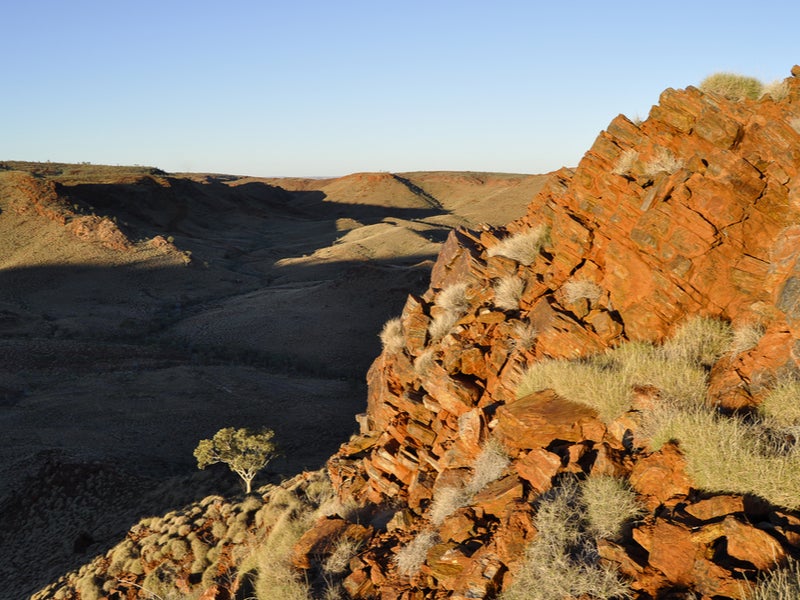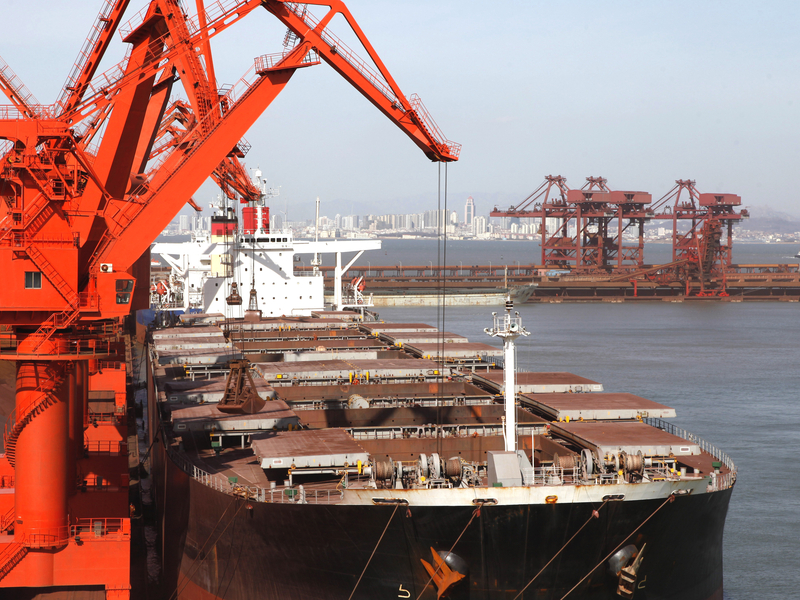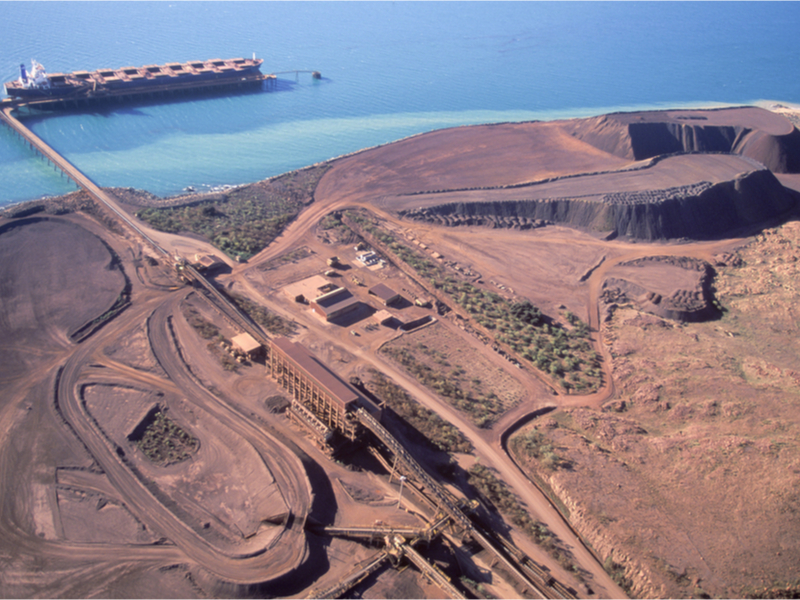
With 30% of the world’s estimated 170 billion tonnes in its backyard, iron ore forms a central pillar of the mining industry in Australia.
Most of the country’s iron ore is located in Western Australia, which stood second in terms of global iron ore production, with three of the top five iron ore mining companies hailing from this state. The top two hail from Melbourne.
Only China outstrips Australia it in terms of total volume, but its iron ore is predominantly used domestically and typically of a low grade. This has made Western Australia the world’s largest supplier of global seaborne iron ore, along with being the main exporter to China.
A forecast by the Government of Western Australia estimated the state’s iron ore supply in 2019 to be about 878 million tonnes.
NS Energy profiles the top five iron ore mining companies in Australia:
1. Rio Tinto
Topping our list of iron ore mining companies in Australia, is Melbourne-based diversified mining giant Rio Tinto. The mining and metals pioneer not only produces iron ore for steel but also other minerals and ores, such as aluminium for cars and smartphones, titanium for paint, copper for wind turbines, water pipes and electric cars, and diamonds.
Established in Spain in 1873, the world’s second-biggest miner has business interests spanning 36 countries and a workforce of about 47,000 on its payroll. In 2018, Rio Tinto was the only miner to stop producing coal and other fossil fuels.
Rio Tinto shipped 327.4 million tonnes of iron ore in 2019, while boasting a gigantic market cap of nearly AU$150bn on the ASE. It also generated an annual revenue of more than $43bn in the same year, as per a Bloomberg study.

2. BHP Group
Second in this list of Australian iron ore producers, is the Anglo-Australian mining behemoth BHP Group, which also happens to be the world’s largest mining company. Based in Melbourne, like its rival Rio Tinto, BHP focuses on oil and gas, copper, iron ore mining, metallurgical coal and mineral processing.
Although having businesses in six continents, similar to global competitor Rio Tinto, BHP primarily operates in Australia and the Americas. With a workforce of more than 62,000 employees, this diversified mining company has a colossal market cap of about AU$180bn on the ASE, as per data generated by Bloomberg, and produced an annual revenue of more than $44bn in 2019.
Its iron ore production for 2019 was 270 million tonnes, a step back from the 275 million tonnes produced in 2018.
3. Fortescue Metals
Headquartered in Perth, Fortescue Metals’ core business is iron ore production and sea-borne iron trading, with its current annual shipments involving more than 170 million tonnes of iron ore.
Established in 2003, Fortescue Metals Group‘s current infrastructure comprises two mine hubs (the Chichester Hub and the Solomon Hub, both of which it owns and operates) with a third facility in the pipeline. The Chichester Hub, located in the Chichester Ranges of Pilbara, Western Australia, includes the Cloudbreak and Christmas Creek mines. The Solomon Hub, also located in Western Australia’s Pilbara, but in the Hamersley Ranges, consists of the Firetail and Kings Valley mines.
With more than 5,450 employees, Fortescue Metals had a market cap of over AU$50bn in 2019, with annual revenues of AU$13.9bn the same year.

4. ITOCHU Minerals and Energy of Australia
Headquartered in Perth, Western Australia, ITOCHU Minerals and Energy of Australia (IMEA) Pty Ltd. is a 100%-owned subsidiary of Japan’s ITOCHU Corporation (headquartered in Tokyo), a top global general trading company.
Founded in 1967, IMEA generates its revenue through investment in and production of iron ore, coal and alumina. ITOCHU Australia has joint ventures with Mitsui ITOCHU Iron and Japan Alumina Associates. It also manufactures mining machinery.
ITOCHU Australia’s Mt. Newman joint venture with BHP (IMEA 5%, BHP 85% and Mitsui-ITOCHU Iron 10%) has operations that mainly concentrate on Mt. Whaleback and the surrounding ore bodies.
According to the ITOCHU Australia website, IMEA’s annual production capacity is about 280 million tonnes with estimating its 2019 annual revenue to be $1.06bn (US$1=AU$1.41). Forbes puts parent company ITOCHU’s market cap at $29.6bn.
5. Hancock Prospecting
One of the most successful, privately-owned companies in Australia, Hancock Prospecting Pty Ltd. (HPPL) and Western Australia’s Pilbara region go way back in their association with the iron ore and agriculture sectors.
Hancock, which is also one of Australia’s oldest cattle station owners, was founded by Lang Hancock who discovered iron ore in 1952 and pioneered the associated industry in the Pilbara.
Hancock Prospecting is a progression of 10 major iron ore mines beginning with the first in 1966. All were developed from original discoveries by Hancock, who was popularly known as “the flying prospector” due to his penchant for using a light fixed-wing aircraft in the exploration of minerals.
Australia’s single largest iron ore mine, Roy Hill, is HPPL’s majority-owned (70%) $10bn mega operation. Successful development has seen Roy Hill producing 55 million tonnes of ore in 2019. Hancock’s Hope Downs joint venture with Rio Tinto produced about 47 million tonnes in the same year.
Hancock acquired Perth-based iron ore specialising company Atlas Iron Limited for $418mn in an off-market takeover bid in late 2018, which reflected positive results with Atlas Iron contributing $144mn to HPPL’s net profit post-tax in the first year of acquisition.
Atlas Iron’s mining portfolio includes exploration, acquisition and development with operations in Western Australia’s Northern Pilbara region. Atlas Iron generated an annual revenue of $703mn in 2019.



